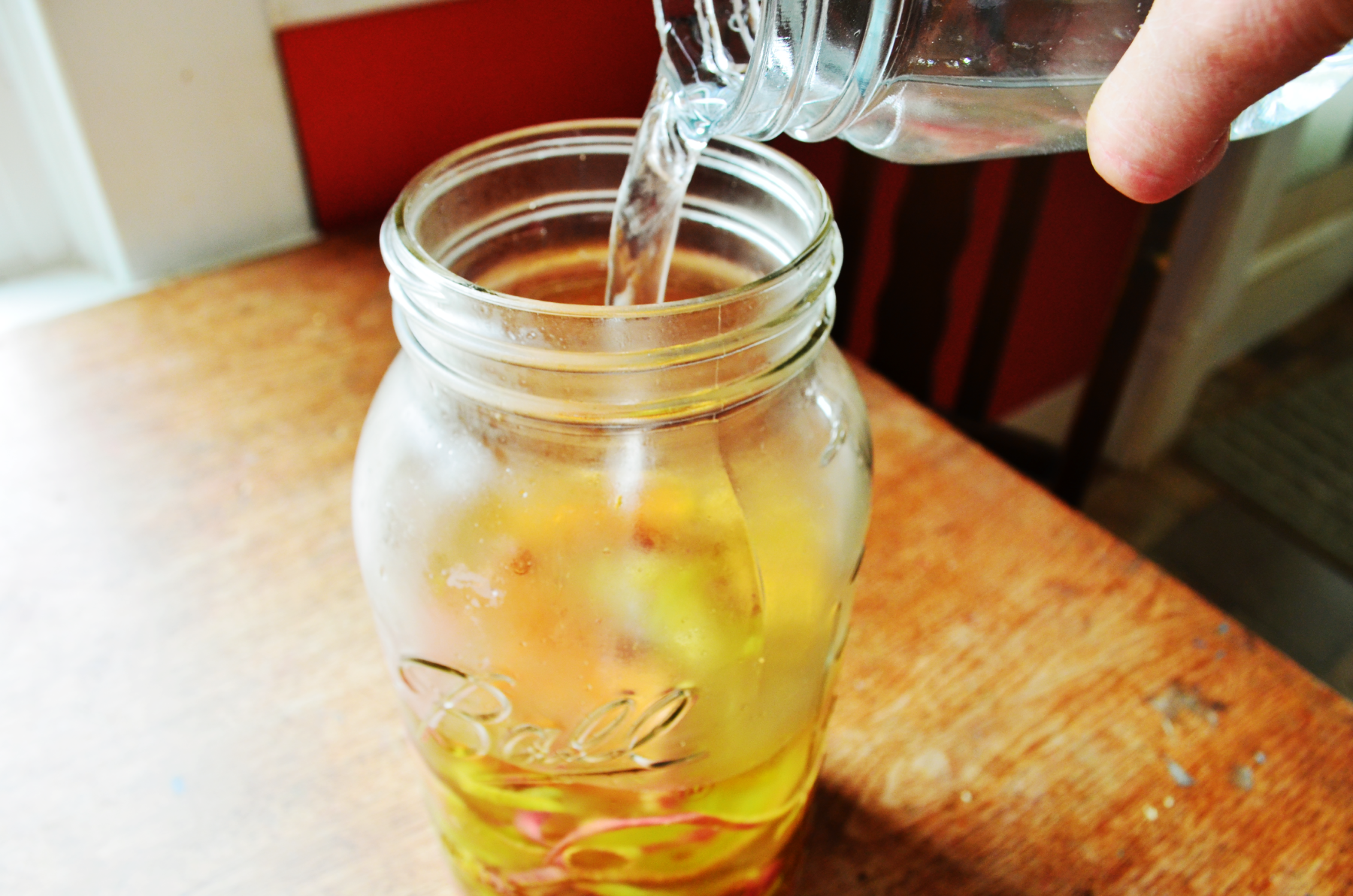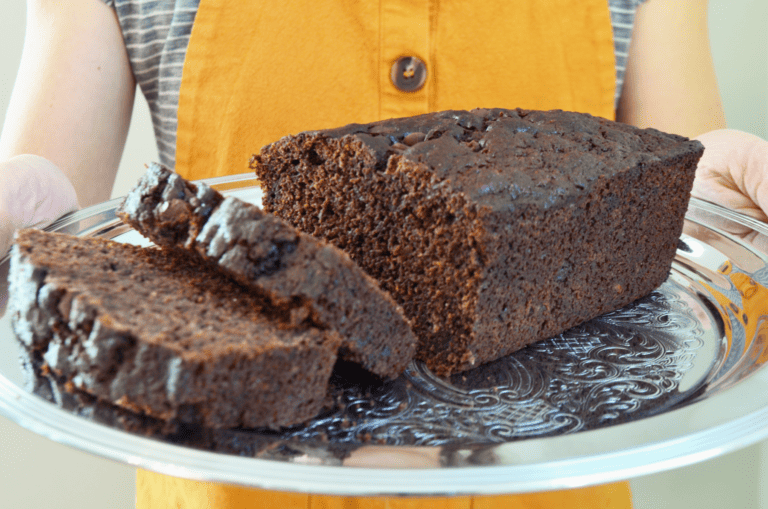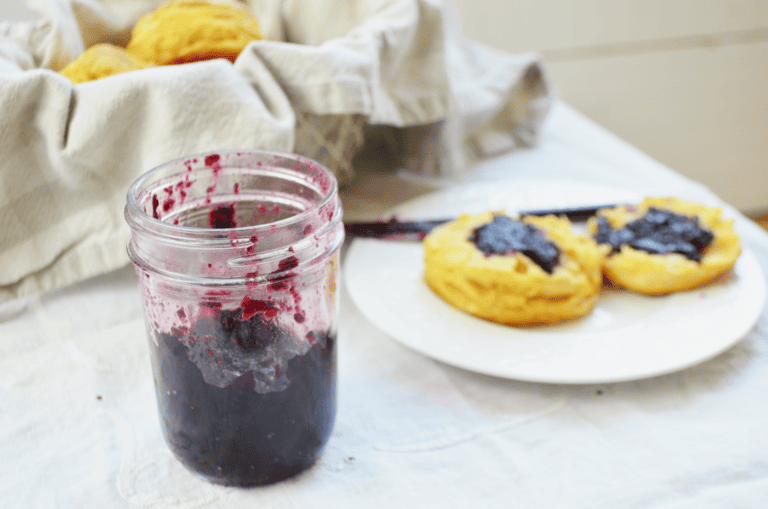White Vinegar vs. Apple Cider Vinegar in the Kitchen
There’s no doubt you’ve had to use vinegar at some point in your kitchen. Whether in salad dressings, sauces, or cleaning, there are so many uses. There’s so many types of vinegars! There’s nothing like a balsamic dressing with balsamic vinegar. Rice vinegar is perfect in Asian cooking. White wine vinegar is heavenly on poultry while red wine vinegar pairs well with red meat. Personally, the types of vinegar I use the most have to be distilled white vinegar and unfiltered apple cider vinegar. These both have multiple purposes that suite them to a tee. They both are full time kitchen workers. Which is better for cooking? Which is better at cleaning? How are these vinegars made in the first place. Let’s compare white vinegar vs. apple cider vinegar and figure it out.
This post contains affiliate links which means if a purchase is made after clicking on the link, I will earn a small commission at no additional cost to you. I only recommend products I believe in.
How The Vinegar is Made
White Vinegar
Let’s start with white vinegar. creation of white vinegar happens through the conversion of alcohol into acetic acid. Today, white vinegar is commonly made from grain alcohol. the hard stuff. In the past, it came from many sources: sugar beets, potatoes or milk whey to name a few. Vinegar is created when microorganisms eat up the alcohol of a beverage, if you will, leaving the bitter sour flavor (the acetic acid) and no alcohol. Oh, and a pungent smell!
If you’ve followed my sourdough making post, you know that microorganisms are everywhere and enjoy breaking down food in a process we know as fermentation. Distilled white vinegar is made when added water dilutes the acetic acid content to only 5-10 %. This leaves 90 or more percent water. Don’t be fooled by the word distilled! Distilled white vinegar is still sharp.
Apple Cider Vinegar
Apple Cider vinegar is made from just that: Apples. It’s easy to make this vinegar at home by simply using leftover apple peels and cores, a little sugar and water. This is a two step fermentation process. Left for several weeks to a few months, microorganisms turn it to cider (with alcohol), then vinegar. You can also start with apple cider or unpasteurized apple juice. Since apple cider naturally turns to vinegar when left to ferment, it’s basically just that: fermented apple cider. The alcohol is turned into acetic acid bacteria (acetobacter species). It can take weeks to months to develop depending on the environment, sugar levels and other factors. This vinegar develops a brown color with a fruity flavor.
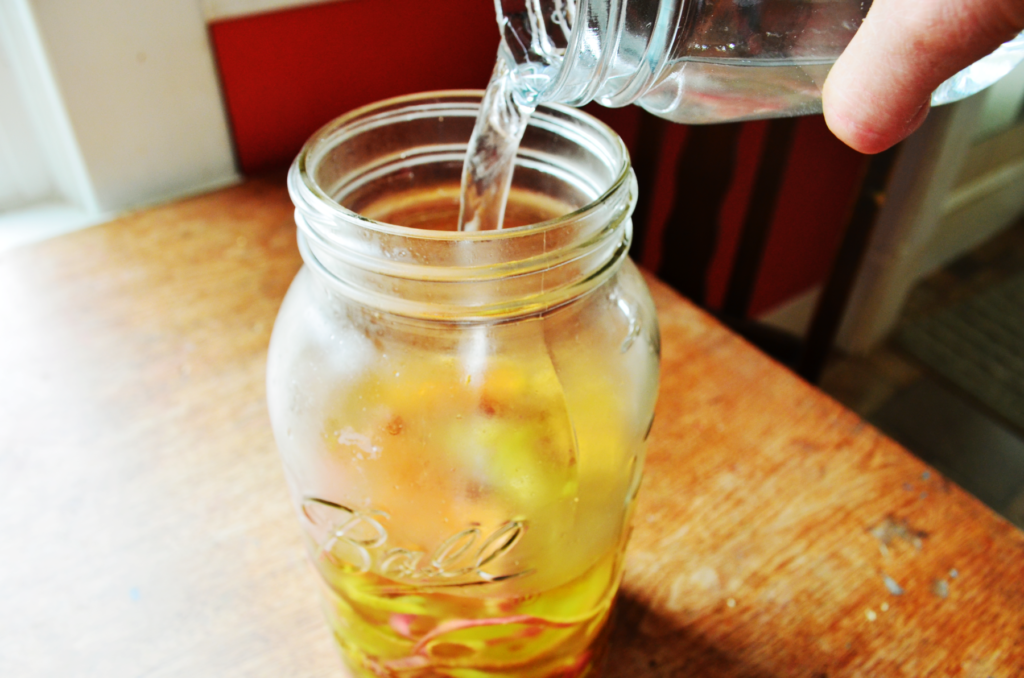
Note that apple cider vinegar in this post is specifically “with the mother.” How apple cider vinegar gets it’s great health benefits is directly related to having the “mother of vinegar” in it. What is the mother? The Mother is the leftover dark brown specks remaining from the fermentation of the apples. If your Apple cider vinegar (ACV) is clear, your missing the mother. Apple cider vinegar isn’t just vinegar but polyphenols, vitamins, minerals, flavonoids, and organic acids.
White Vinegar vs. Apple Cider Vinegar: Health Benefits
Apple Cider Vinegar Health Benefits
There are countless Books that share the endless health benefits of apple cider vinegar. Here’s just a few of it’s great benefits.
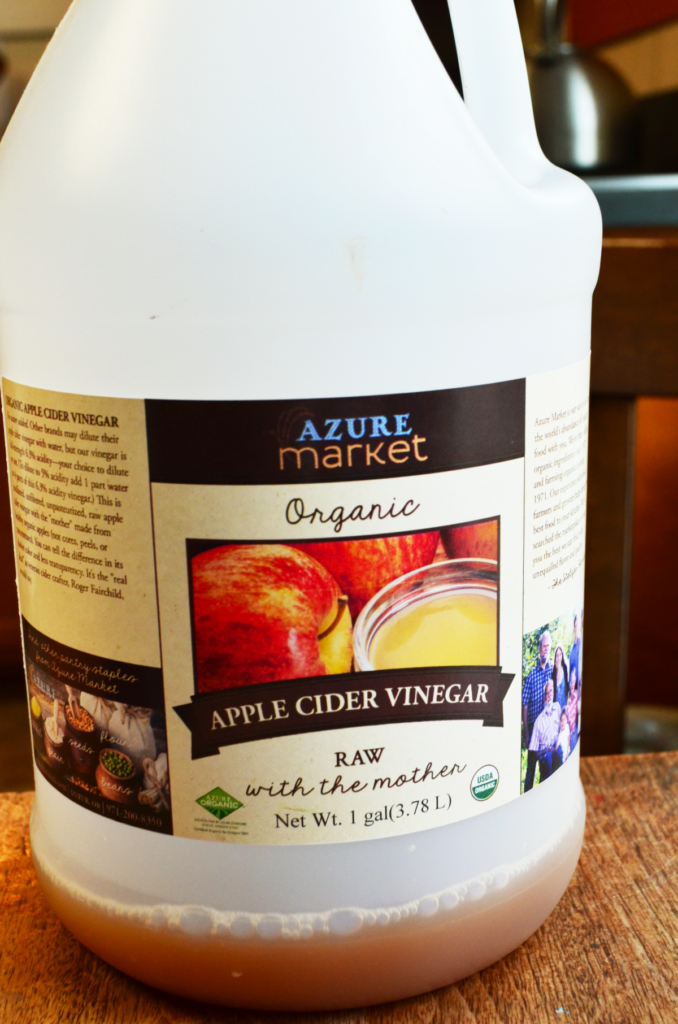
- Weight loss. It doesn’t take long on a search engine to find a crowd of people touting an ACV drink that brought their waist down.
- Fights acid reflux. Contrary to popular belief, acid reflux actually occurs from a lack of acid in the stomach. a bit of ACV can regulate the stomach acid, relieving acid reflux. This one is my personal favorite. During my third pregnancy, I demanded to have ACV close after every dinner.
- Regulates pH. Just as ACV balances acid in the body, it also balances pH. This means it keeps the body’s pH at the perfect level to fight off illness. The result is a great immune system support.
- Antibacterial and antimicrobial properties. It can help detoxify the body by flushing toxins out.
- Helps Drain a Sinus Infection. If you take ACV with a bit of ceyanne it could help drain the respiratory system.
- ACV Baths. These help sooth sunburns, kill fungus on the skin such as athletes foot or body odor bacteria and help hair soften, shine and prevents split ends. I can testify to the last one as I’ve used ACV rinses in the shower. My hair glowed with highlights. It’s also been more easily manageable when using ACV.
- Regulate Blood Sugar Levels. There have been few studies on ACV for blood sugar regulation but many on “vinegar” in general. Vinegar can help to regulate good blood sugar levels.
- Is a probiotic food.
- Fights off candida albicans, staphylococcus aureus, and escherichia coli.
White Vinegar
Who knew! Many of the same health benefits of ACV are also health benefits of distilled white vinegar. Here’s many uses I found for health needs.
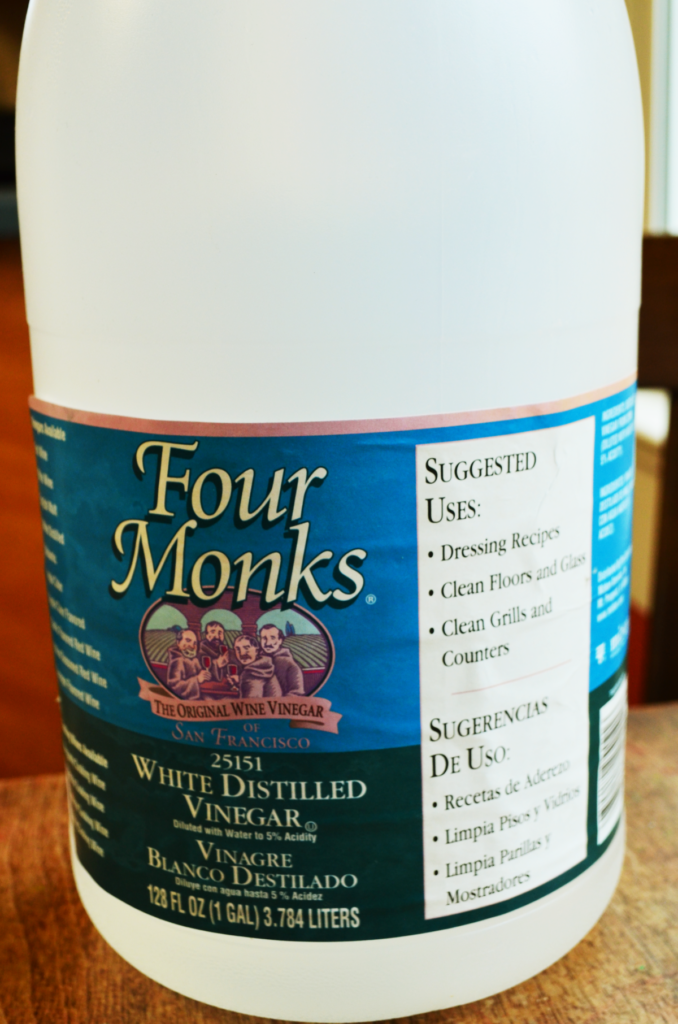
- Blood Sugar Regulation. In my research, blood sugar regulation came up constantly ( even for ACV) but the studies only specified using “vinegar.” It wasn’t specific to any type of vinegar.
- Lowers cholesterol (ACV also claims to lower cholesterol).
- Improves skin health (ACV also improves skin health).
- Balances pH (just as ACV does)
- Supports weight loss (as ACV does)
- Kills Bacteria (as ACV does)
White Vinegar vs. Apple Cider Vinegar: Best way to use in the Kitchen
Best Apple Cider Vinegar Uses
- Natural deodorizer for a stinky room when paired with water. One cup water to one cup of apple cider vinegar.
- Antimicrobial properties make it great for cleaning, including adding a bit to water to clean produce.
- This is an option for pickling, but the deep fruity flavor can be rich for some who like the familiar sour taste of white vinegar.
- Clean a dishwasher by putting a cup of vinegar in the top rack. Run through with hot water and open to find a cleaner machine.
- Add with baking soda for a great cleaner in the sink or on the stovetop.
- help baked goods rise with just one tablespoon of apple cider vinegar.
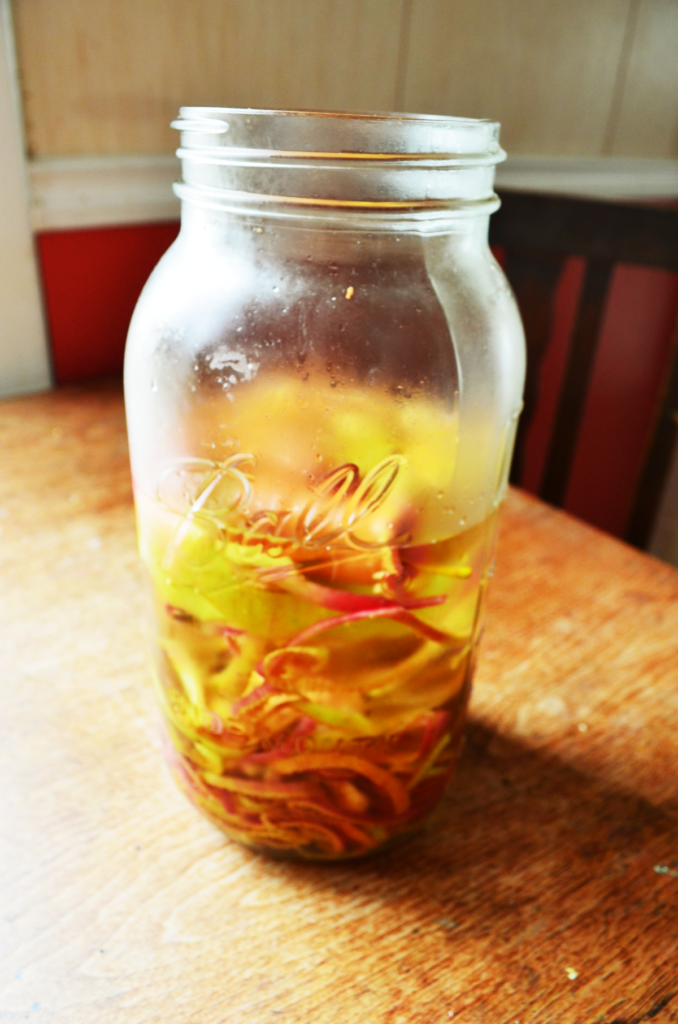
Best White Vinegar Uses
- White Vinegar can both kill and prevent mold.
- The acidic level of white vinegar give it antimicrobial properties, making it a perfect choice for disinfecting and cleaning.
- It cuts grease and grime. White vinegar is an excellent choice for scrubbing kitchen stovetops and dishes.
- Clean the dishwasher by placing a cup of vinegar in the top rack. Run through with hot water and open to find a cleaner machine!
- White vinegar is a favorite type of vinegar for pickling.
- A great kitchen staple for making salad dressings, marinades and more.
- Make homemade cottage cheese!
- Can be a good substitute for buttermilk when combined with milk.
White Vinegar and Apple Cider Vinegar: Adverse Effects
While there are many beneficial aspects to both vinegars, there are also things to keep in mind.
- Because vinegar is a ferment, it has the ability to affect gut bacteria. This can be great for some people and problematic for those with sensitivities to fermented foods.
- It can be especially damaging to teeth as seen in this study comparing affects of ACV, white vinegar and hydrogen peroxide on tooth enamel.
- White vinegar may cause redness if applied to the skin.
- Because of it’s high acidity, it may cause acid reflux or heartburn in some people. Be sure to dilute with water when consuming.
- White vinegar is a fermented food. This may cause digestive problems in those with unbalanced gut flora as it can encourage yeast overgrowth. It’s best to consume in minimal amounts.

Sum it up
Let’s sum it up! Both of these vinegars have extremely similar uses. White vinegar has many of the same health benefits of apple cider vinegar. The main takeaway I found was to choose according to use.
1. White vinegar has a higher acidity level unless you purchase undiluted apple cider vinegar .
2. ACV has a few more health benefits than white distilled vinegar. White vinegar is made from grains ( grains can be inflammatory and GMO). Apple cider vinegar is made from apples. The apple fermentation builds even more health benefits including the ability to fight candida, E coli and Staph microbes. White vinegar tends to feed the candida living in the digestive tract. If you have an yeast overgrowth or gut bacteria imbalance, avoid this.
3. Always opt for organic to avoid pesticides and GMO’s.
4. If you’re looking to substitute, research recipes first. Sometimes apple cider vinegar is too sweet and other times you want the sweet taste.
Health benefits alone: apple cider vinegar wins. For kitchen use, white vinegar is invaluable. Hope this was helpful. I’d love to hear how you use your vinegar!
Other Posts You Might Like
Buttermilk Biscuits with Einkorn Flour
Does Einkorn Cause Inflammation?
Simple Care and Keeping of a Wooden Cutting Board
From the Hilltop,

